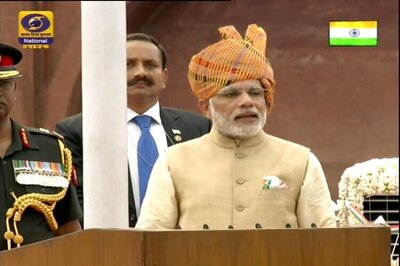
views
Regulatory moves discouraging retail investors’ derivative market bets may help the banking system garner the much-needed deposits, SBI Chairman Dinesh Kumar Khara has said.
Khara said the budget announcements like the tweaks on the short-term and long-term capital gains will not lead to much gains from a deposit accretion perspective.
Also Read: Futures & Options Saga: Experts Say Sebi Proposal To Reduce Volumes, Bring Down Volatility
“F&O (future and options) kind of things are being discouraged for the retail (investor) by the regulator. Those who are resorting to such kind of an instrument, they might come back to the banking system,” Khara told news agency PTI.
It can be noted that concerns over losses incurred by 90 per cent of investors in the derivative trades have led to fears of household savings being blown in speculation rather than being deployed for productive purposes among policymakers.
As per capital markets regulator Sebi, retail investors lost Rs 52,000 crore in such activity in FY24 alone which necessitates a clampdown.
Recently, Sebi chairperson Madhabi Puri Buch said households are losing up to Rs 60,000 crore a year in the problematic futures and options segment.
Sebi has come up with a seven-point plan to reduce such trades, while some moves in the Union Budget are also targeted to reduce such activities.
Key proposals include; increasing minimum contract size, reducing the number of weekly options contracts, upfront collection of option premiums and limiting the number of strike prices on expiry day.
Slow Deposit Growth
For the last three years, the deposit growth is unable to keep pace with credit expansion, and Khara said the money is going into alternative avenues like capital markets.
He, however, stressed that the bank account is the primary avenue for parking the savings and continuing to attract interest, and reminded that there was a phase of deposit growth trailing credit growth in 2011 as well witnessed by the banking system.
At present, concerns are being raised about the wedge between the deposit and credit growth leading banks to go slower on granting loans, which can be detrimental for the overall economic growth.
SBI, the country’s largest lender which commands over a fifth of market share, is targeting a credit growth of 15 per cent in FY25 and a deposit growth of 8 per cent, Khara said.
Stating that the bank will try to get the deposit growth at 10 per cent, he made it clear that the credit growth target can be achieved even with a slower pace of deposit growth of 8 per cent due to its liquidity position.
The bank chose to deploy excess deposits in the past into its investment book and is currently unwinding the same as it caters to the credit demand, Khara said.
He said the bank’s liquidity coverage ratio stands at 128 per cent and it has decided to keep it over 110 per cent.
(With PTI inputs)



















Comments
0 comment